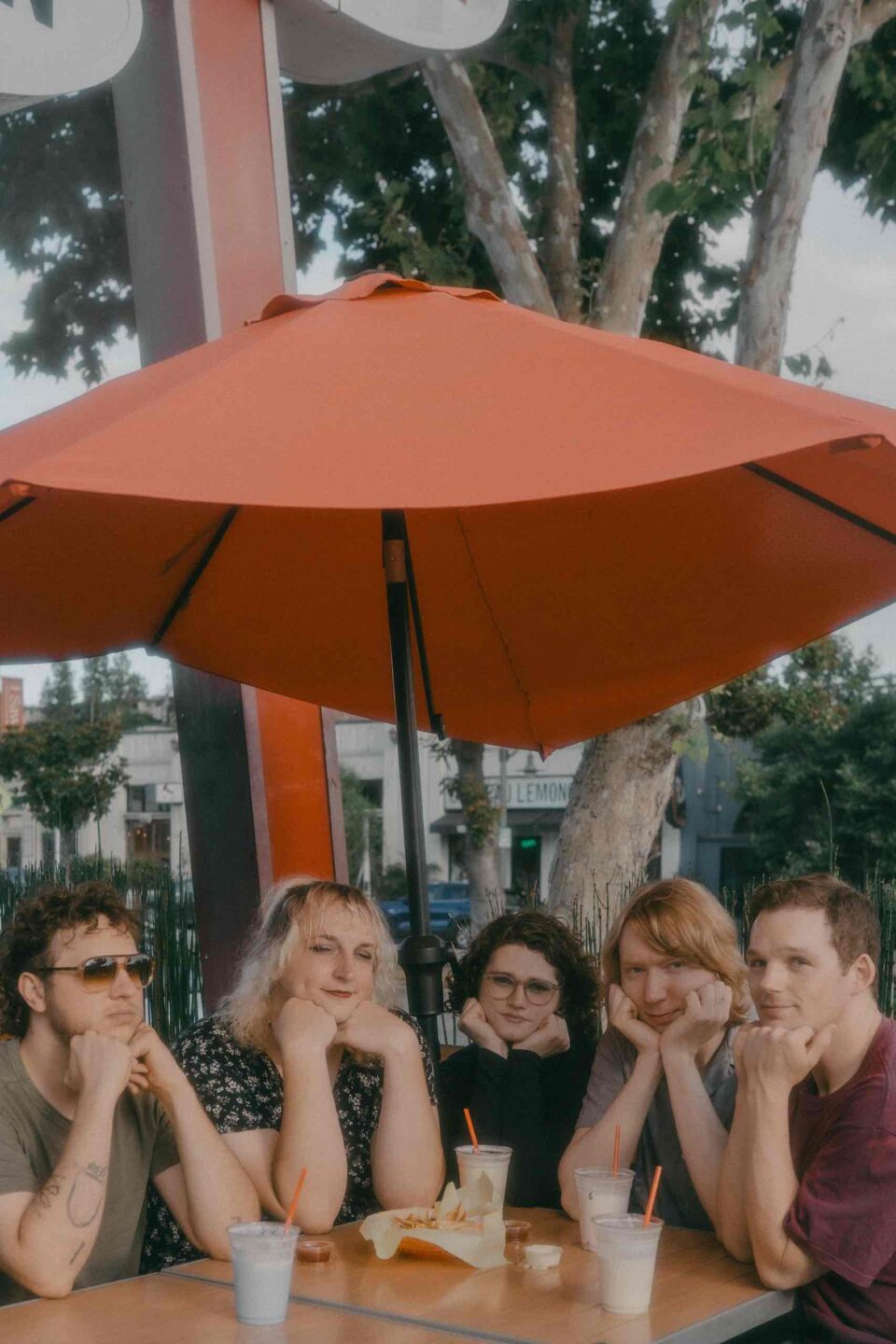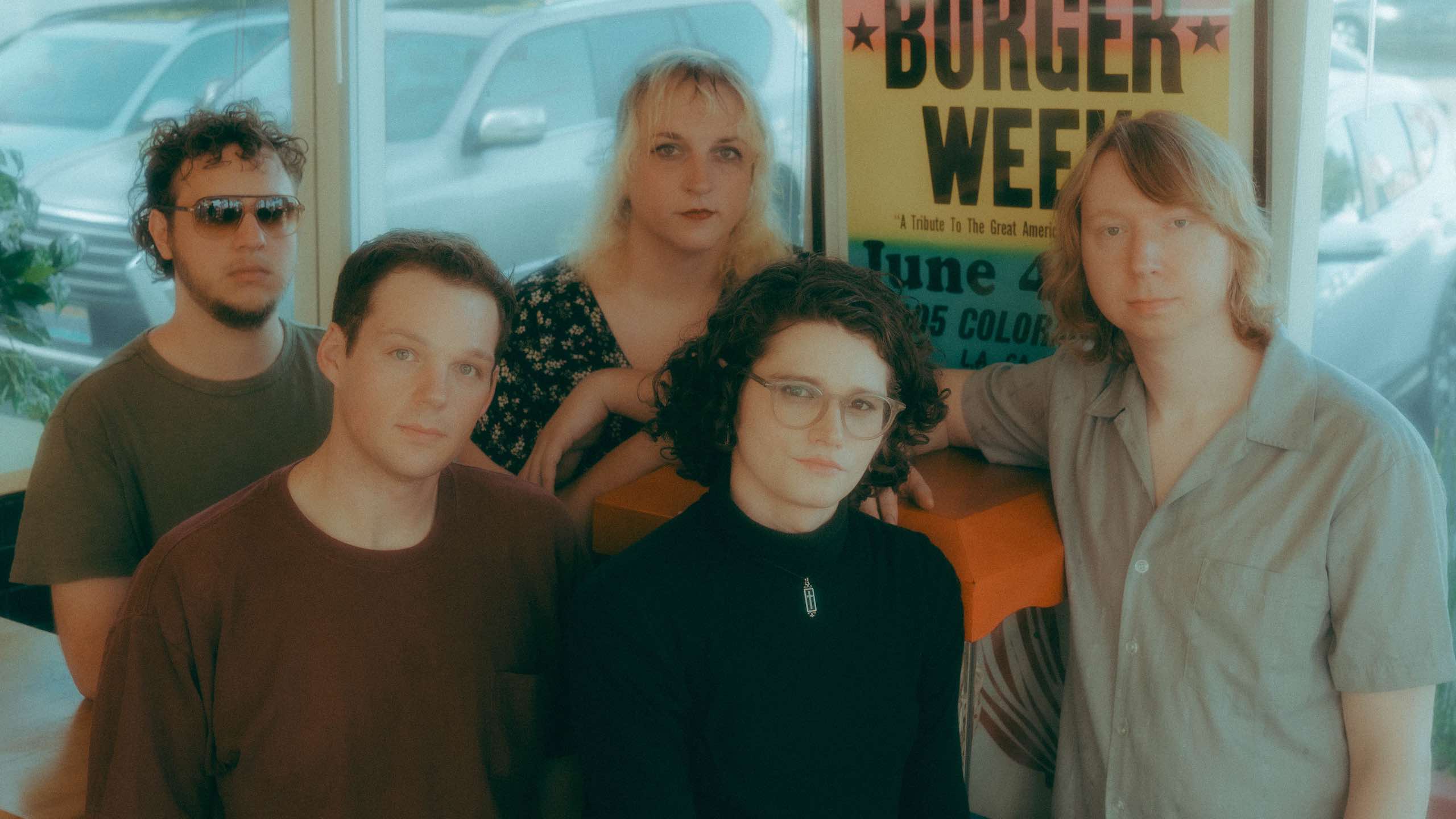Greet Death seem like one of contemporary rock’s most unknowable bands. Years before everyone else was casually intermixing grunge and shoegaze’s blistering riffs with slowcore’s drowsy pacing, Logan Gaval and Harper Boyhtari seemed to understand that there was a mutual malaise among these sonically divergent ’90s-era alt-rock subgenres that felt like a more existential take on slacker-rock ideology. It’s the same extremist coin-flip that serves as the backbone for all the best Paul Schrader screenplays, a fellow palm-of-Michigan native who’s long been fascinated with the concept of unknowable protagonists slowly introduced via the deepest depths of their souls—a belief that the only cure for the daily grind is self-annihilation or a love so deep it could pull you out of your body entirely. For Greet Death, this lyrical polarity is aided by equally contrasting vocals from the competitively sleepy band leaders singing about vivid nightmares and crawling back into bed and waiting around for death to come, both in their distinctive vocal styles.
If that doesn’t sound like enough opacity for Gaval and Boyhtari to hide behind, it only gets more complicated when you factor in the band’s born-to-post affectations outside of the recording studio. “Pretty much every song I wrote on that record was about, like, jerking off or cum,” revealed a deadpan Gaval during the Q&A portion of a 2020 Audiotree session while explaining the growth the band underwent between their 2017 debut Dixieland and 2019’s breakout first record for the near-purist metal/hardcore label Deathwish, New Hell. They had just wrapped up a stirring play-through of the album track “Strange Days,” a song seemingly written from the perspective of a corpse whose internal monologues recall the precise morbidity the band tends to mine in their lyrics. While Boyhtari maintained a more earnest air, answering a follow-up question regarding influences with shoutouts to Jason Molina and Neil Young, Gaval concedes that he shamelessly copies solos from the great American dad-rock songbook: “Every solo is pretty much Guns n’ Roses.”
I experienced this strange inter-band dynamic myself the night after that session was recorded—and immediately after Greet Death filmed a stony walkthrough of their tour van that quickly devolved into some extended bit about goblins—when I caught the show in Chicago they were promoting at Audiotree. In the midst of performing the then-new album’s deeply affecting nine-minute centerpiece, the dramatically titled “You’re Gonna Hate What You’ve Done,” as Gaval and Boyhtari engaged in a rare call-and-response passage they began to swap out their own lyrics about feeling a sense of guilt so seismic that the sun rises prematurely, as if to klieg-light it, for a very different refrain: the chorus to “Life Is a Highway” (I’ve read comments online affirming they’ve done this with Weezer’s “Undone (the Sweater Song),” too).
This is all to say that Greet Death has long been a band that’s more concerned with achieving an absolute value than maintaining a sense of consistency, a band that’s oddly complementary when not perfectly in sync. Their new album Die in Love feels like the most explicit thesis statement yet regarding this stance, opening as it does with a wish that summarizes a hefty majority of their prior lyrical content: “I just wanna die in love and release all my pain.” Not only is there that pinching together of the poles of heaven and hell, but the massive shoegaze guitars that open this title track unexpectedly give way to a few calm, almost upbeat verses before the track is bookended with more shredding. Not to mention the fact that that lyric feels more than a bit euphemistic—especially after Gaval ends the track with his classic invocation of cum.
Where the lyrics on their last two albums scan as some vague blend of modernized malaise and ancient death poetry, Die in Love feels uncharacteristically coherent much of the time. On songs like “Red Rocket,” Gaval can be found reshaping his lyrics’ morbid imagery into more cogent romantic metaphors (he claims to have studied Paul McCartney to craft less depressing songs this time around), while Boyhtari has become more transparently reflective of major life changes, whether they be a quick succession of weddings and funeral or family get-togethers inevitably leading to everyone “drinkin’ cheap beer / Going crazy for a bullshit Eagles song” (unclear whether that includes Gaval). Given that the record was written over a period of immense loss for the band (both literal and figurative), it naturally follows that they were able to expand the scope of what previously passed as a love song among their discography—I’m thinking lines like “I’ll be your last dance,” affectionately cooed on what amounted to a pop-shoegaze romantic ballad on their 2022 New Low EP, despite being titled “Panic Song.”

But perhaps the band’s sleight of hand when it comes to adjoining what immediately feel like contrasting poles is best displayed with the successive tracking of pre-album singles “Same but Different Now” and “Country Girl”—the former a new watermark for the band’s raging, straightforward post-hardcore, the latter perhaps their most eerily spare slowcore ballad. And while the Gaval-sung former works oddly well as a dream-logic-y trans allegory conceivably dedicated to his lifelong friend and co-vocalist, who came out on the band’s socials back in 2023, Boyhtari manages to take things even deeper into the realm of the unconscious on the jarringly somnambulistic following track—a pure distillation of “smalltown shit” imagery cut with scenes that could only be obtained in a realm accessible by the most you-don’t-want-any-part-of-this-shit-Dewey of psychoactive drugs. It fundamentally feels like a C&W song—her own “Walk Hard”—written from the point of view of the deeply fried sense of reality one arrives at by the final chapter of a psychological-horror video game.
I’ve spent six years with New Hell, and “psychological-horror video game” actually feels like a pretty apt metaphor for that record, too, both in its hazy sense of mortality and in its tracklist feeling less narratively straightforward (I’m always surprised to remember that the aforementioned prolonged centerpiece isn’t the dramatic closer it could very well have been) and more like something one wanders among, the gap between records recalling the feeling of strolling through the same rooms while futilely trying to push the game’s story forward despite still not being immune to some of the jump scares. A part of me expected Die in Love to feel more coherent as an album statement, as the band has spent over half a decade maturing, but I think that this maturation has only led to the project being more fully realized as something separate from convention.
Inland Empire feels like another worthy point of comparison in that it’s less of a good movie-movie than Blue Velvet, yet nothing has ever been captured on film that’s alarmed me more than an eerily lit Laura Dern running straight at me. If there’s unambiguous comfort to be found anywhere on Die in Love, though, it’s the reassurance that she doesn’t get to leave the frame. FL







